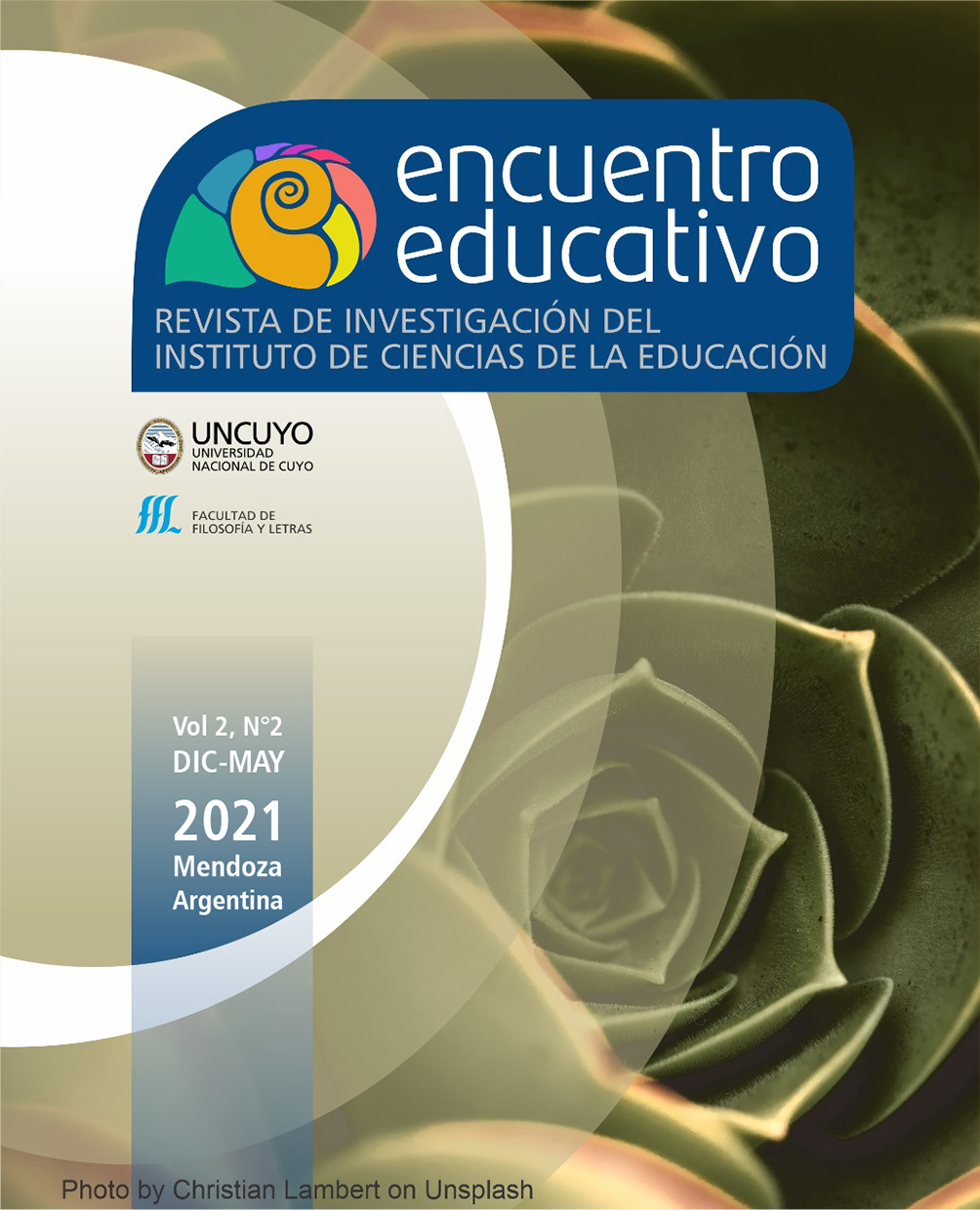Epistemological conceptions that underlie the sports teaching practices of physical education teachers in secondary education
Keywords:
Epistemological conceptions, Physical Education, teaching intervention devices, sport, sports gameAbstract
The article synthesizes the process and results of a research carried out as the basis of an undergraduate thesis required to complete the Master’s Degree in
Teaching Practice at the Faculty of Arts and Humanities in the Universidad Nacional de Rosario, Argentina. The title of such work matches this writing. The question of the research is: What are and how are the epistemological concepts that underlie the sports teaching practices carried out by Physical Education teachers in Secondary Education of the city of Formosa manifested? To understand what epistemological conceptions underlie sports teaching practices and how they manifest themselves is proposed as the major objective. The research is based on a qualitative approach with hermeneutic characteristics and
was aimed at case studies to address the particularity of the events that take place in teaching practices and the complexity of the relationships between them in four
unique cases. Documentary analysis, interviews, classroom observations and photographic and cartographic records have been used as the main instruments during the research. In addition, the study emphasizes the analysis of each case and the subtle differences between them without pretending to compare or to generalize them.
The research allows to visualize the mixed presence of epistemological approaches in the teaching of sports that come from social sciences, which are intertwined with conceptions about the relationship between theory and practice and the paradigms of Physical Education.
The article has an introduction where physical education is emphasized as a pedagogic discipline and the motive of the study, the theoric grounds that support it, the methodologic focus that guided the process and the conclusion reached.
References
Bauman, Z. (1978). Hermenéutica y las Ciencias Sociales. Nueva Visión.
Benejam, P. (1997). Las finalidades de la Educación Social. En Benejam, P. y Pagés, J. (Coords.), Enseñar y aprender ciencias sociales. Geografía e Historia en la Educación Secundaria (pp. 33-42). Universidad de Barcelona, ICE/HORSORI.
Bourdieu, P. Wacquant, L. (2008). Una invitación a la sociología reflexiva. Editorial Siglo Veintiuno.
Carr, W. (2002). Una teoría para la educación. Ediciones Morata, S.L.
Chinchilla Minguet, J. Ballesteros, J., y López Ibañez, J. (2000). Educación Física en la EGB, Teorías y prácticas docentes. LESA.
Corrales, N., Ferrari, S., Gómez, J. y Renzi, G. (2010). La formación docente en educación física. Perspectiva y prospectiva. Noveduc.
Crisorio R. (2003). Educación Física e identidad: conocimiento, saber y verdad. En Bracht V. y Crisorio R.
(2003). La Educación Física en Argentina y Brasil. Identidad, desafíos y perspectivas (pp. 21-38). Ediciones Al Margen.
De la Rica González, J. (1993). La iniciación deportiva en la escuela. Los deportes colectivos. En En D. Blázquez Sánchez (Ed.) Fundamentos de la educación física en la enseñanza primaria. Vol. II (pp. 759-795). INDE.
De Lella, C. (2003). El modelo hermenéutico reflexivo y la práctica profesional. Revista Decisio, 20, 20-24.
Fernández, L. M. (1998). Instituciones educativas, Dinámicas institucionales en situaciones críticas. Editorial Paidós.
García Eiroá, J. (2000). Deportes de equipo. Editorial INDE.
Giralde, M., Brizzi, H. y Madueño, J. (1998). Didáctica de la Educación Física. Ediciones Fácula S.R.L.
Morín, E. (2002). Educar en la era planetaria. El pensamiento complejo como Método de aprendizaje en el error y la incertidumbre humana. Universidad de Valladolid. UNESCO.
Pérez Gómez, A.I. (1993). La interacción teórica-práctica en la formación docente. Acta del Congreso Internacional sobre Didácticas Específicas en la Formación del Profesorado. Universidad de Santiago de Compostela. Tórculo Ediciones.
Pérez Gómez, A. I. (1996). Los procesos de enseñanza-aprendizaje: análisis didáctico de las principales teorías del aprendizaje. En G. Sacristán y A. I. Pérez Gómez (1996). Comprender y transformar la enseñanza (34-62). Morata.
Sanjurjo, L. y Rodriguez, X. (2003). Volver a pensar la clase. Las formas básicas de enseñar. Homo Sapiens.
Sanjurjo, L. (Coordinadora). (2015). Los dispositivos para la formación en las prácticas profesionales. Homo Sapiens.
Saviani, D. (1981). Las teorías de la educación y el problema de la marginalidad en América Latina. www.pedagogía.edu.co/storage/rce/artículos/1304ens.pdf
Schön, D. (1998). La formación de profesionales reflexivos. Paidós.
Stake, R.E. (1998). La investigación con estudio de casos. Morata.
Tedesco, J. C. (2010). La educación en el horizonte 2020. Documento básico. Educación y Justicia: el sentido de la educación. Fundación Santillana.













